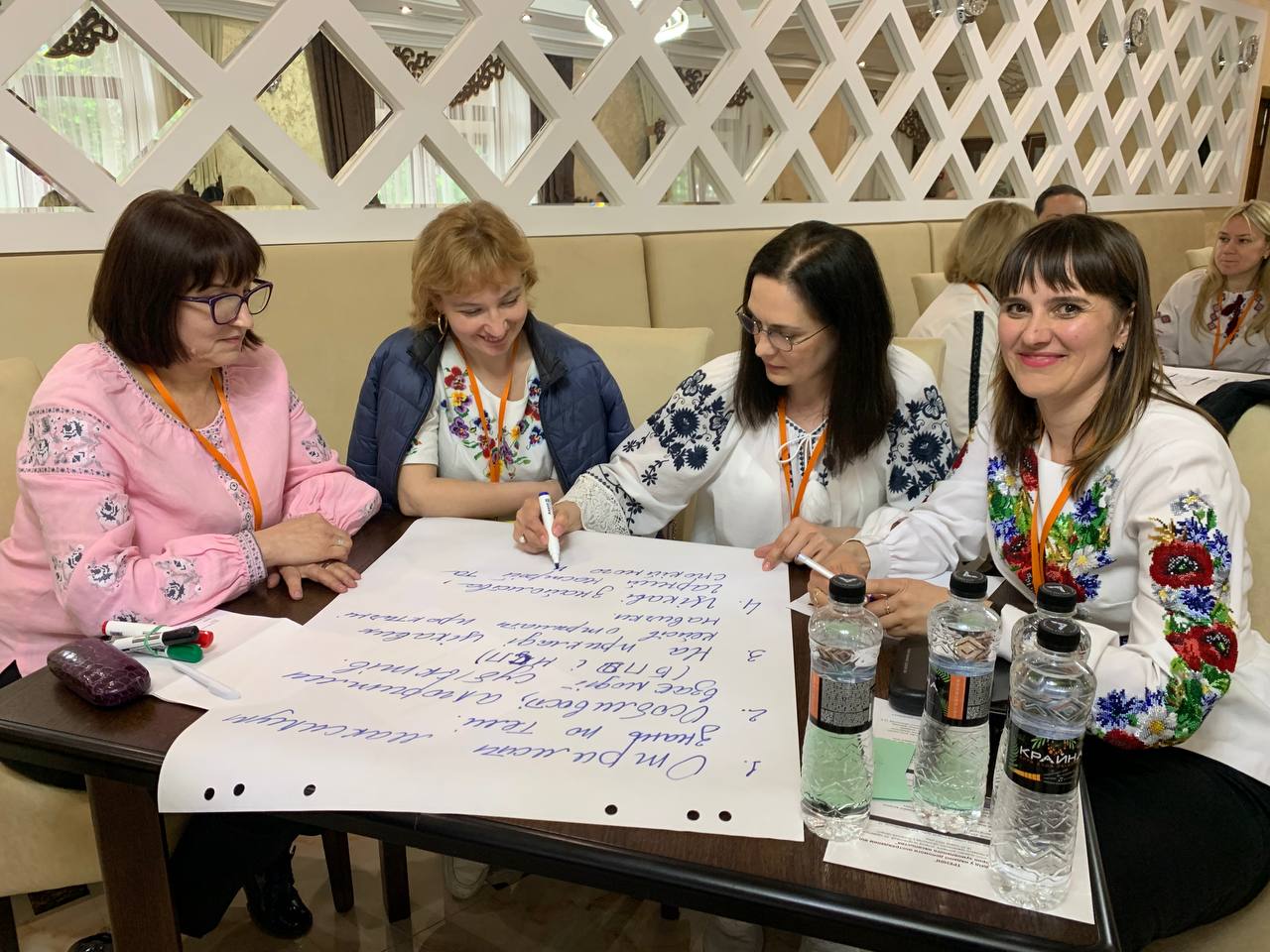The USAID Economic Resilience Activity (ERA) supported a training in Truskavets, for 34 representatives of free legal aid centers (FLAC), as well as lawyers and social service specialists from Lviv Oblast, who provide services to gender-based violence survivors.
The idea to hold this training is a response to the request of the participants of the interregional roundtable “Challenges in providing assistance to survivors of gender-based violence in the conditions of war”, which was held in Lviv on April 5. It was then that the participants discussed how difficult it is to build effective interactions between representatives of the various institutions responding to gender-based violence following the reorganization of many structures and agencies, and how important it is to conduct training to improve interagency cooperation. For example, currently, there are only eight social service centers and centers for the provision of social services across 72 local communities in Lviv Oblast. This was perceived as inadequate, hence the need for the training to enhance interaction between them to improve the delivery of services.
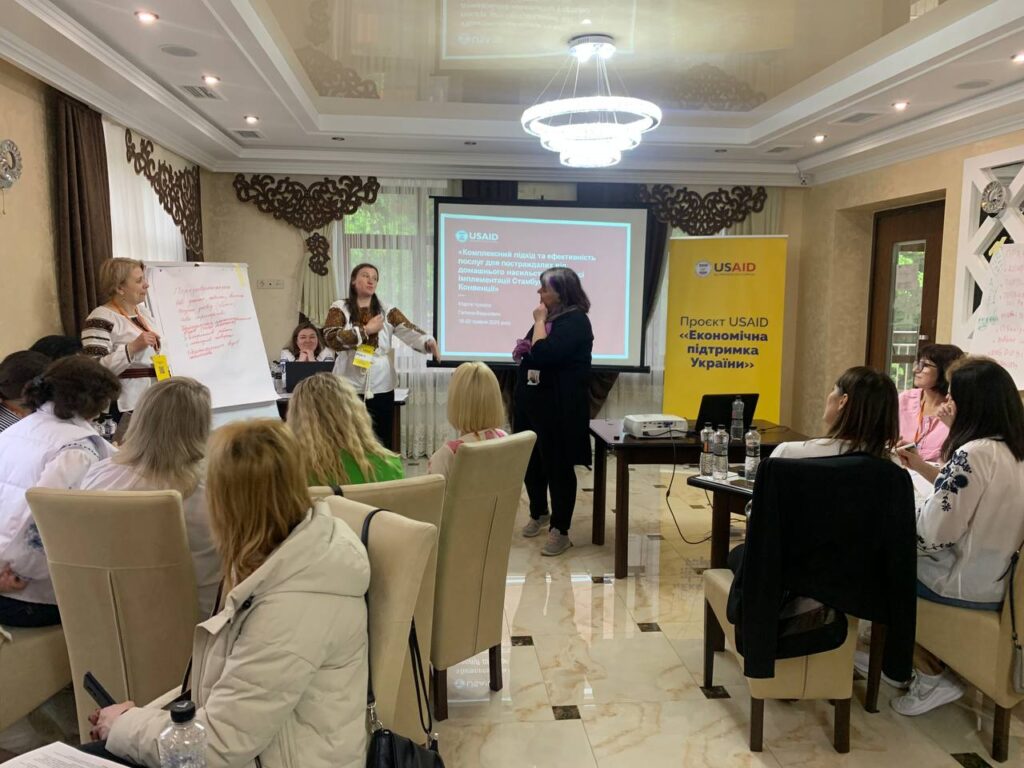
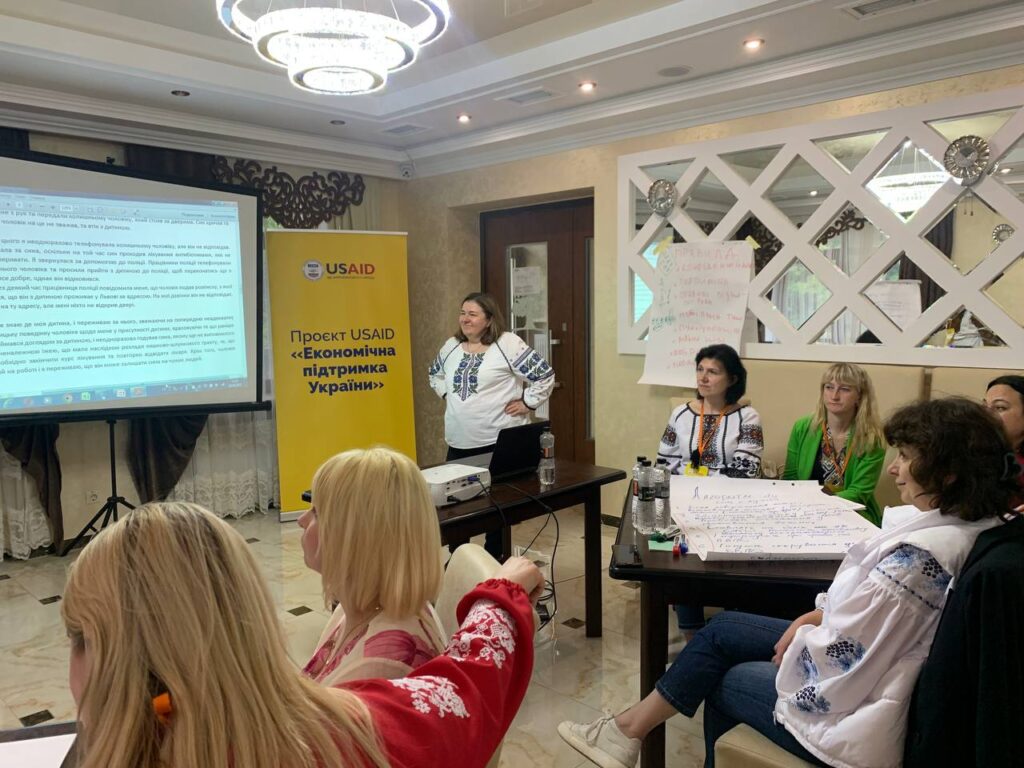
The trainers of the event – Marta Chumalo and Halyna Fedkovich, experts from the “Women’s Perspectives” Center and ERA consultants, covered the legal aspects of protecting survivors of various forms of violence, discussed how to protect women and bring perpetrators to justice for their crimes, the difference between violence and conflict, how best to communicate with survivors so as not to cause harm, and how to fully collect evidence in each specific case, using opportunities available in small communities.
During the interactive training session, the participants spoke about theoretical models, developed practical strategies, and identified the advantages and disadvantages of Ukrainian and international legislation. There were also practical exercises on expectations of how social services representatives should act, and the participants also worked in small groups to analyze case studies on how to improve the provision of assistance to survivors of violence.
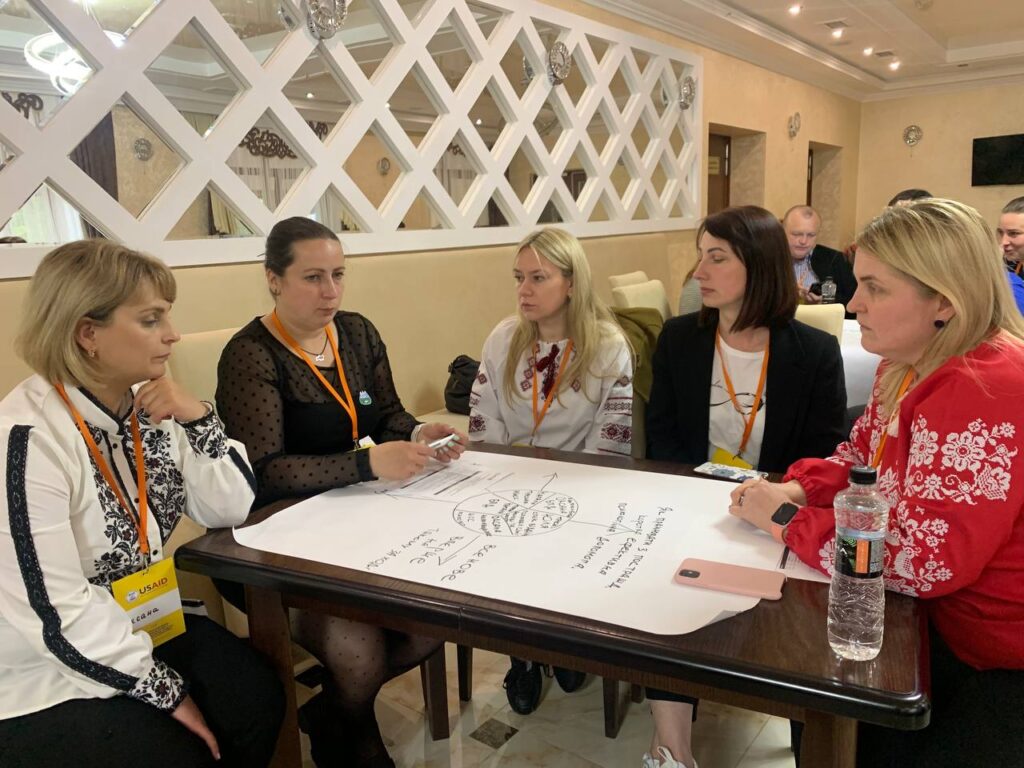
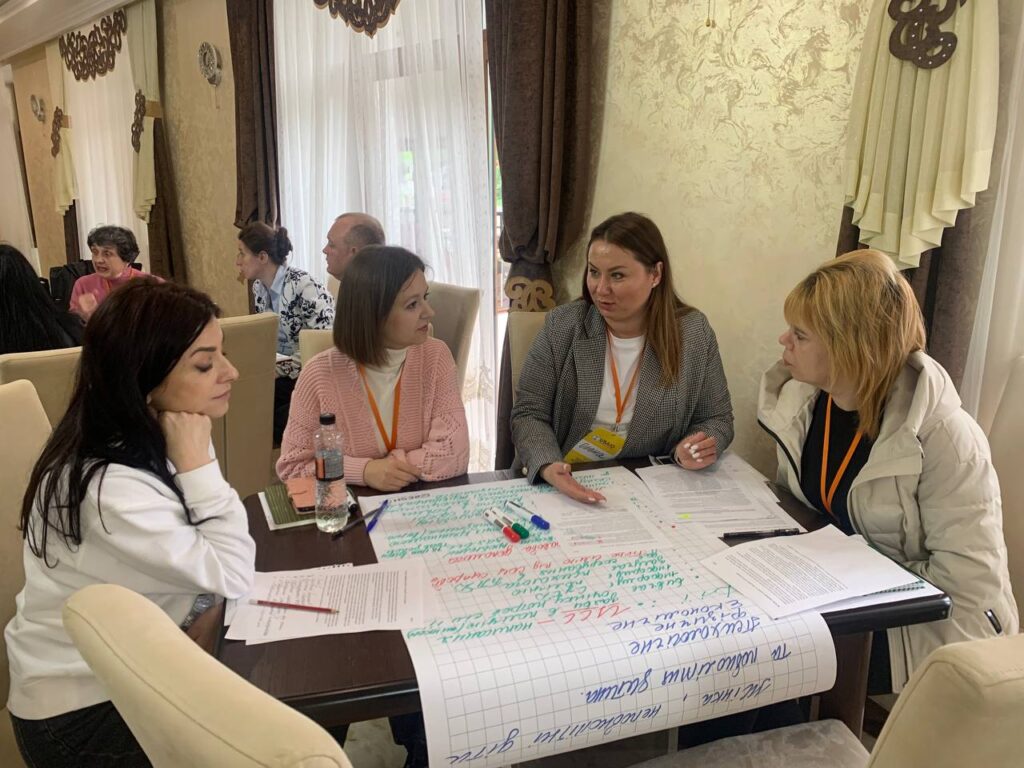
Further, the lawyers and representatives of social services developed joint strategies to help survivors, analyzed who else needs to be involved for better support, and what evidence is needed further to protect the rights of survivors.
During the training session, the participants identified the following problems.
For example, children’s services are formally established in all communities because there is a direct legal requirement, but in most cases, they are staffed by a single social work specialist and do not have a psychologist. Accordingly, after receiving information from the police about domestic violence against a child or in the presence of a child, there is no appropriate specialist to assess the condition, possible harm and necessary services that need to be provided for the child. Information about children is not always transferred to the social services center (SSC), or vice versa – all children are referred to the SSC, regardless of whether the child has suffered harm or needs services.
Also, dealing with cases of survivors of gender-based and domestic violence requires the appropriate specialization and experience of lawyers, otherwise, additional barriers to access to justice may arise. For example, if divorce lawsuits are filed without specifying domestic violence as a reason for divorce, and alimony is collected in an action rather than in a writ proceeding, and the survivor has to wait for a long time and may receive a smaller amount of alimony.
Often, the cases of one survivor of domestic violence are transferred to different lawyers. For example, a restraining order and divorce to one lawyer, alimony and property division to another. This complicates and reduces the effectiveness of the survivor’s defense.
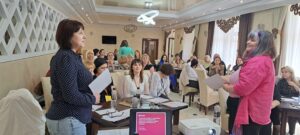
“Clients come to me in different states – aggressive, angry, offended – and sometimes I don’t know how to respond to them, so I wanted to hear some advice on how to behave in such a situation,” says Uliana Fys, a lawyer from Lviv who participated in the training session. “And during the training, I heard some tips that I can implement in my practice.”
The participants further observed that the abuser does not have a separate social status, and domestic violence occurs in different families, not only in dysfunctional ones. To prevent violence therefore, people need to be better informed through the media about different types of violence, where to go if a person has been affected, and how to provide legal aid to survivors.
“The issue of identifying violence is very difficult because each of us have our own prejudices. There are many cases when women do not seek help or do not want the police to initiate a case or prosecute their husband, the offender. This happens for various reasons – people are afraid, and they don’t want to be judged or shamed in their community. This needs to change,” says Maria Hembara, a psychologist at the Peremyshliany Territorial Center for Social Services.
Trainer Fedkovich also observed, “according to the law, since 2018, social services have been required to cooperate, but it turns out that this is far from the case. While reviewing practical cases at the training session, we found out that the participants do not have a full understanding of what additional assistance their colleagues from other services can provide to survivors, so such trainings improve communication, and make it possible to understand how we can improve assistance to victims of violence together and develop an evidence base.”
While co-trainer Chumalo noted:
“When specialists from different fields come to the training, it improves communication and helps to establish horizontal links.To improve the quality of care, we need to communicate not at the level of ‘person – system’, but at the level of ‘person – person’, then a business platform is created that can improve the provision of assistance and make it comprehensive. That is why we conduct such trainings, teaching various services to communicate professionally in order to help at the right time.”
They also spoke about the need to further involve judges and priests in the training. Such trainings help to establish high-quality communication between different services that provide assistance to survivors of gender-based and domestic violence.




